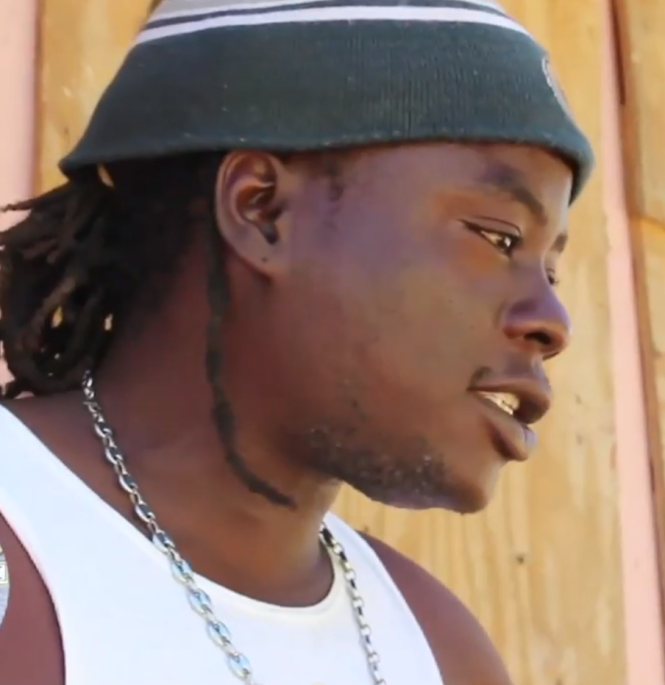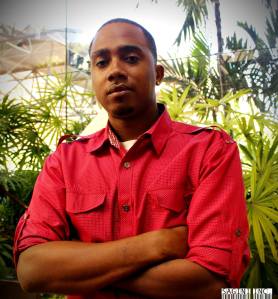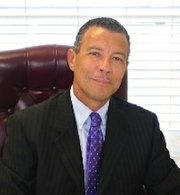By Clement Doleac
Research Associate for the Council On Hemispheric Affairs:
Democracy in Haiti is again at risk, as a fierce political battle has
erupted, preventing the scheduling of new elections. The United Nations
(UN), the Organization of American States (OAS), along with the US and
French governments have all called for the adoption of a new electoral
law, which would allow the elections to go forward. However, given the
deeply flawed nature of the present Haitian political system, it is far
from clear if just holding elections will accomplish much.
An Unsettled Past
Haiti’s political landscape is today comprised of poorly-organized and
highly fluid coalitions of parties, a situation which grows out of the
troubled nation’s tumultuous recent history. François “Papa Doc”
Duvalier was democratically elected – after a fashion – in 1957,
although he quickly came to believe that he was indispensable, declaring
himself president for life. He delivered on this threat, ruling as a
cruel and paranoid dictator until his death in 1971.
With the passing of Papa Doc power fell to his son, Jean-Claude “Baby
Doc” Duvalier, who continued his father’s authoritarian regime.
Opposition gathered and in 1986, Jean-Claude was finally forced to flee
Haiti, one step ahead of an armed revolt against his repressive
dictatorship.
In the years since 1986, democratically elected presidents have governed
Haiti, most notably the charismatic Jean-Bertrand Aristide (1991,
1995-1996, and 2001-2004) and today the talented and handsome singer
Michel “Sweet Micky” Martelly (2011-present).
Haiti’s Jumbled Party System
However all is not well in the Haitian democracy, where anarchy reigns
in the nation’s fragmented political system. A bewildering array of
parties are presently represented in the Chamber of Deputies and the
Senate.
Overall, a total of 18 parties are represented in the Chamber of
Deputies and seven in the Senate. Because of their small size, most
Haitian political parties tend to organize themselves into loose
political groupings to build electoral alliances. For example, Inité
(Unity), which dominates the current composition of Congress, was formed
as a political grouping of several smaller parties to support former
president René Préval.
The report by the International Crisis Group (ICG) correctly sums up the
chaotic situation. The lack of “ideolog[ical] […] clarity leaves
citizens unable […] to choose between clearly defined platforms” in this
fragmented political landscape. “Over 100 parties and groups have
produced the 5,000 signatures required for registration,” the report
continues, and yet for all this diffusion of political input, actual
power rests in the hands of only a few well-positioned party leaders. As
it stands, the Haitian political parties fail at the most basic tasks,
failing to articulate institutionalized policies and to effectively
reach out to the citizens.
Citizenship Skepticism
The weak democratic institutions and the power vacuum provoked by the
2004 crisis led to the absence of strong parties. The ICG report stated
that charismatic personalities and “shallow politicians are
unfortunately filling this vacuum”. Rather than holding politicians
accountable for not addressing Haiti’s economic and social troubles,
these personalities have removed citizens from decision-making, who in
turn have rendered public policy suspect because of a lack of confidence
in the democratic system.
This political skepticism, as the myriad of small parties who have
little organization, inconspicuous ideologies, and murky proposals
consequently created a moldable alliance system and indecipherable
political game. However, there are some stable identifiable structures
in recent Haitian political history.
For example, former President Préval’s platform Inité (Unity, formerly
referred to as Lespwa, Hope) counting with a majority in the Senate and
partly representing the Fanmi Lavalas tendency (from former elected
President Aristide); and the Convention of political parties which
brings together 12 political parties and represents the Fanmi Lavalas
political group.
Another notable party includes the Mouvement de l’Opposition
Démocratique (“Democratic Opposition Movement,” MOPOD), an opposition
platform led by Mirlande Manigat, former ex-first lady before 2011 and
the unfortunate candidate for the 2011 elections.
To most Haitian citizens, politics seem to be little more than an
unseemly scramble by opportunistic charlatans fighting over the spoils
of office. To most people, their elected political officials seem to be
utterly devoid of any guiding principal, faithlessly switching
allegiances overnight, and accepting alliances with the very leaders
they so convincingly denounced just the day before. The political effect
of this is to remove ordinary voters from the decision-making process.
Given the endlessly shifting positions of all politicians, no one have
any real idea about what they might be voting for.
It is within this context that the long overdue elections for the
Chamber of Deputies and a third of the Senate, along with local and
municipal elections, were supposed to take place this year. Initially
scheduled for 2012, then 2013, and finally October 26, 2014, the
elections have now been delayed once again, this time indefinitely. It
is anyone’s guess when, or if they might be held at all.
President Martelly’s Pressure Led to a Legislative Blockage
On September 24, the Haitian Prime Minister, Laurent Lamothe, tried to
resolve the situation, promising that “we will continue working to
ensure that the elections take place as soon as possible. There … [has
been a pending] law in Parliament for more than 185 days,” Prime
Minister Lamothe explained, “[but it is] awaiting ratification by the
Senate, where there are six […] extremists who [are] block[ing] the
vote, so that the elections are not [being] held.”
The six senators are from the opposition grouping, mostly from Inite
such as Jean-Baptiste Bien-Aimé (elected in the department of the
North-East), Jean-Charles Moïse (elected in the department of the
North), Francky Exius (elected in the department of the South), John
Joël Joseph (elected in the department of the West), Westner Polycarpe
(from Altenativ party and elected in the department of the North), and
Jean William Jeanty (from Konba party, elected in the department of
Nippes).
In the opinion of this so-called “G-6” (group of six), the presidential
draft of the Electoral Law was adopted without any respect for the
Constitution or the legislative process. Legislators previously proposed
a first draft in 2011, but it was never ratified by President Martelly.
The G-6 criticize the way the executive power by decree imposed the
members of the Conseil Electoral Provisoire (Provisional Electoral
Council, CEP) to be in charge of ruling the electoral process.
As The Miami Herald pointed out, “[i]n addition to the senators, several
large political parties in Haiti are also opposed to the agreement and
were not part of the negotiations [the so-called El Rancho Accord]. In
addition to raising constitutional issues, Martelly’s opponents have
also raised questions about the formation of the CEP tasked with
organizing the vote”. Many feel that it is currently being controlled by
the President.”
International Support to an Authoritarian Electoral Process
The Permanent Council of the OAS, weighing in on the matter, blandly and
predictably called for the prompt carrying out of the overdue
elections. The Permanent Council expressed its, “deep concern for the
lack of progress in the electoral process” in Haiti, and urged all
political stakeholders to continue dialogue and to fulfill their
obligations under the Constitution. The OAS depicted the six senators as
the culprits in the electoral hold up.
“The Draft Electoral Act, an essential tool for organizing these
elections,” the OAS noted, “was passed on April 1 2014 by Haiti’s
Chamber of Deputies and immediately transmitted to the Senate for its
consideration and approval.” However, the OAS, pointed out, “no action
has been taken by the Senate” on this matter. Samantha Power, US
Ambassador to the UN, has echoed this outlook, noting with dismay that
“a group of six senators seems intent on holding elections hostage to
partisan concerns, even going so far as to prevent a debate on the
electoral law.”
However, Mirlande Manigat, Haitian constitutional scholar and runner up
in the 2011 presidential elections, blames President Martelly: “for
three years, he refused to call elections,” she said. “A large part of
this is his fault,” she added, “[and it is therefore] unfair to accuse
the six senators for the crisis.”
Last year, Sandra Honoré, the head of the UN Mission to Stabilize Haiti
(MINUSTAH), explained what caused the G-6 senators to unite: “Despite
the executive branch’s repeated public statements in favor of holding
the elections as soon as possible […] [it] had intentionally delayed the
process to ensure that Parliament would become non-functional.”
Despite this, problems are much deeper regarding political governance in
Haiti. The principal opposition party, Fanmi Lavalas, was not allowed
to participate in past presidential elections for questionable reasons,
which later led to a boycott of legislative elections. Besides the
boycott, some political actors of Fanmi Lavalas ran in the last
electoral race and got elected thanks to the Lespwa political platform
(and joined Inite), and represent now four senators of six who oppose
the actual draft of the Electoral Law.
Even with no official representation in the official bodies of the
State, Fanmi Lavalas is one of the strongest platforms in the country
and should be able to participate in the electoral process. The CEP
should also have the support of every political party in the country, in
order to avoid future electoral disputes.
Why Hold a Flawed Election?
The Center for Economic Policy Research (CEPR) concluded last month how
the United States and other countries involved in Haiti, having done no
more than making speeches each year calling for fair elections, “are now
willing to accept any sort of election”, even at the cost of violating
the Constitution. One of the ICG’s principle recommendations in their
February 2013 report was for Haiti to seek “to develop and promote more
genuinely representative, better-structured parties capable of
formulating and sustaining substantive platforms and playing a more
effective role in the country’s development.”
Only this, the ICG stated, would allow Haiti to achieve “truly inclusive
and competitive elections.” This seems accurate. Certainly Haiti needs
to hold elections, but after the fiasco in2010, with massive fraud and
less than a quarter of potential voters bothering to cast ballots, it is
highly doubtful that simply holding an election will resolve the
long-term problems of Haitian political life. It may be impossible to
have democracy without elections, but, as Haiti is proving, it is all
together possible to have elections and still not have anything close to
resembling democracy. What Haiti needs is a real democracy, and
elections alone will not accomplish that.
The Council on Hemispheric Affairs, founded in 1975, is an
independent, non-profit, non-partisan, tax-exempt research and
information organization. It has been described on the Senate floor as
being "one of the nation's most respected bodies of scholars and policy
makers." For more information, visit www.coha.org or email coha@coha.org
December 11, 2014
Caribbeannewsnow






